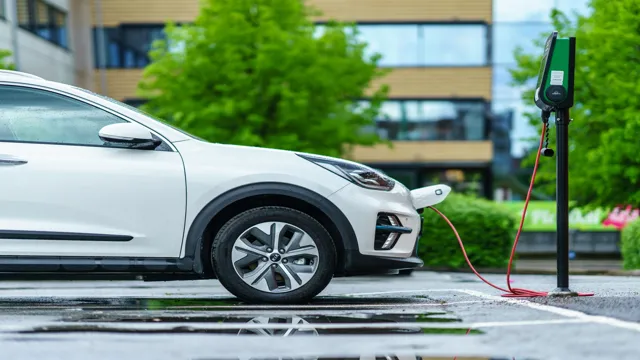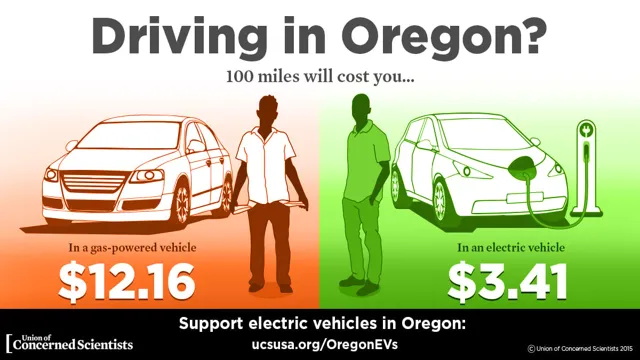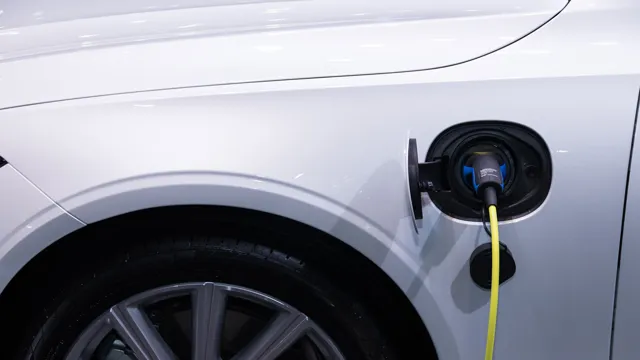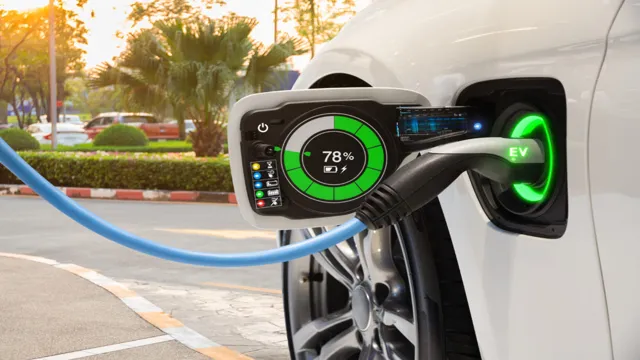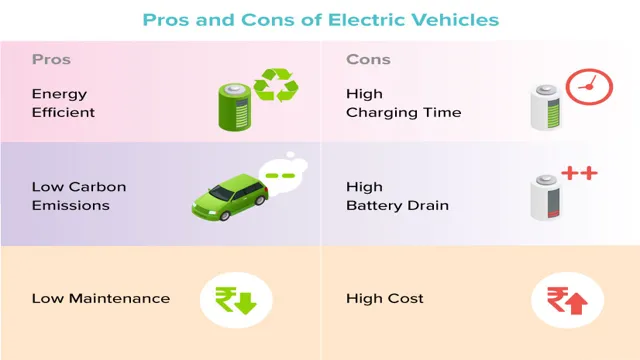Exploring the Environmental and Economic Benefits of Electric Cars in the United States
Imagine never having to stop at a gas station again. Sounds too good to be true, right? Well, not anymore. Thanks to the advances in technology and industry efforts, electric cars are now becoming increasingly popular among US citizens, as they offer exceptional benefits over their gas-driven counterparts.
Electric cars are vehicles that are entirely or partially powered by electricity through an onboard battery that can be recharged by plugging at a charging station. These cars have been around for several decades but have only recently seen a significant increase in popularity. This blog post aims to highlight the benefits of electric cars in the US, which are not only limited to the environment but also to the economy and individual drivers’ pockets.
Reduced Emissions
One of the biggest benefits of electric cars in the US is their reduced emissions compared to traditional gasoline-powered vehicles. By using electricity as their primary source of power, these vehicles emit significantly less harmful pollutants into the air, which helps to improve overall air quality and reduce greenhouse gas emissions. This is especially important in areas with high levels of air pollution, as electric vehicles can help to mitigate the negative effects of these pollutants on public health.
In addition to reducing emissions, electric cars also offer cost savings to drivers in terms of fuel and maintenance costs, which makes them an attractive option for those looking to limit their environmental impact without breaking the bank. And as more and more charging stations are installed across the US, it’s becoming easier than ever to own and operate an electric car, making it an increasingly accessible choice for eco-conscious drivers.
Improved Air Quality
Improved air quality is a growing concern for people all over the world, especially in major cities where pollution levels can be hazardous. One way that air quality can be improved is by reducing emissions from transportation, factories, and other sources. This can be achieved by switching to cleaner energy sources, such as electricity or natural gas, rather than relying on oil or coal.
In addition, stricter regulations on emissions from vehicles and factories can help significantly reduce the amount of harmful pollutants released into the environment. Reducing emissions not only benefits the environment, but also public health. Exposure to air pollution can cause respiratory problems and other health issues, especially for children and the elderly.
By improving air quality, we can help prevent these health problems and create a healthier society for everyone. Governments and individuals both have a role to play in reducing emissions and improving air quality. By making conscious choices about transportation, waste disposal, and energy use, we can all contribute to a cleaner and healthier planet.
Incorporating sustainable practices into our daily lives not only improves air quality, but also helps to mitigate the effects of climate change. As we continue to rely on fossil fuels and emit harmful pollutants, we are contributing to the warming of our planet and the consequences that come with it. By reducing emissions and investing in clean energy technologies, we can create a more sustainable future for ourselves and for future generations.
It’s up to all of us to take action and make a positive impact on the world around us.

Minimized Carbon Footprint
Reduced emissions are a crucial part of minimizing our carbon footprint. As individuals and businesses, we must take responsibility for the impact we have on the environment and take proactive steps to reduce our emissions. This can be achieved through simple changes like using energy-efficient light bulbs, switching to green energy sources, or using public transportation instead of driving.
Companies can also implement sustainability practices like reducing waste, recycling, and using renewable resources. By reducing our emissions, we can help slow down the rate of climate change and protect our planet for future generations. So, what small steps can you take today to reduce your carbon footprint?
Cost Savings
One major benefit of owning an electric car in the US is the significant cost savings that come with it. Charging your car with electricity is much cheaper than filling up at the gas pump, and this translates to immediate savings for drivers. Additionally, maintenance costs for electric cars are lower than traditional gas-powered cars because they have fewer moving parts and don’t require oil changes.
Some states in the US also offer tax credits or rebates for purchasing an electric car, further reducing the overall cost of ownership. With the increasing availability of charging stations and improving technology, owning an electric car is becoming an increasingly affordable and environmentally-friendly option for drivers. Whether you’re looking to save money in the long-term or reduce your carbon footprint, an electric car is worth considering.
Lower Fuel and Maintenance Costs
Having a vehicle comes with additional expenses such as fuel and maintenance costs, which can be a burden on your wallet. However, with advancements in technology, modern cars are now built with fuel-efficient engines, which help in cutting down fuel expenses. Apart from this, electric vehicles have also gained popularity due to their low maintenance costs and energy efficiency.
Electric cars require less maintenance than their gasoline counterparts, and with the absence of oil changes, spark plugs, and other components, the cost of maintenance is significantly reduced. Switching to eco-friendly vehicles is a great way to save on costs while reducing your carbon footprint. Overall, opting for a fuel-efficient or electric vehicle can save you a significant amount of money in the long run, making it a smart financial decision.
Tax Credits and Rebates
Tax Credits and Rebates If you’re planning on making a home improvement project or purchasing energy-efficient appliances, then you should consider applying for tax credits and rebates. Some local and state governments offer tax incentives or credits for homeowners who make energy-efficient upgrades in their homes. Tax credits can help reduce the cost of these home improvements and make them more affordable in the long run.
Moreover, some utility companies also provide rebates for customers who purchase energy-efficient appliances or make energy-saving upgrades to their homes. These rebates can help reduce the upfront cost of a new appliance or home improvements, making it easier for homeowners to invest in energy-efficient technologies. By taking advantage of tax credits and rebates, homeowners can save money while promoting sustainability and reducing their carbon footprint.
Technology Advancements
Electric cars have numerous benefits in the US. These vehicles are eco-friendly and emit zero pollutants, making them a great option for anyone who cares about the environment. But that’s not all – electric cars are also cost-effective in the long run.
Compared to traditional gas-powered cars, electric vehicles have lower maintenance costs, and they require fewer repairs. They also save money on fuel, as electricity is cheaper than gasoline. Additionally, the government offers several incentives to encourage people to buy electric cars, such as tax credits and rebates.
These incentives can significantly reduce the cost of purchasing an electric vehicle. All in all, owning an electric car in the US can be a smart and sustainable choice, both for your wallet and the planet.
Improved Performance and Efficiency
In recent years, technology advancements have greatly improved the performance and efficiency of various systems and devices. From smartphones to our cars, these improvements have made our lives more convenient and enjoyable. One major advancement is the use of AI and machine learning algorithms that enable devices to learn and adapt to the user’s preferences.
This allows devices to operate faster and more efficiently, resulting in greater productivity and reduced energy consumption. Moreover, the use of cloud computing has made it possible to access vast amounts of data and perform complex computations in real-time. The emergence of 5G networks has also revolutionized the way we connect to the internet, offering faster speeds, larger bandwidth, and lower latency.
These advancements have greatly enhanced the functionality and performance of our devices, bringing us closer to a more efficient and connected world.
Increased Range and Charging Options
One of the biggest challenges for electric vehicle owners has been limited range and charging options. But with technology advancements, those challenges are now being addressed. Newer EV models have significantly increased their range, with some now capable of traveling up to 400 miles on a single charge.
This means that owners can go longer distances without worrying about finding a charging station. Additionally, there are also more charging options available now, from at-home charging stations to public charging stations on major highways. This means that EV owners can choose the option that fits best for their lifestyle and travel needs.
With these advancements, owning an electric vehicle is becoming more convenient and practical as they continue to gain popularity.
Future Sustainability
Electric cars have been making waves in the United States and around the world. While there are many benefits to this eco-friendly mode of transportation, one of the biggest advantages is its positive impact on sustainability. By driving an electric car, you can reduce your carbon footprint and contribute to a cleaner, healthier planet.
Not only that, but with rising gas prices and an unpredictable economy, electric cars can also be a more economical choice in the long run. And with more and more charging stations popping up across the country, it’s easier than ever to make the switch to electric. So if you’re looking for a way to reduce your impact on the environment and save money at the same time, consider the many benefits of owning an electric car in the United States.
Less Dependence on Fossil Fuels
As we look towards a more sustainable future, one of the key areas we must address is our dependence on fossil fuels. Every aspect of our modern lives is powered by fossil fuels, and we must find new ways to meet our energy needs without relying on them. Renewable energy sources like solar, wind, and hydroelectric power are increasingly being used to power both homes and businesses.
These sources are clean and abundant, and don’t produce harmful greenhouse gases the way fossil fuels do. In addition, advances in battery technology are making it possible to store renewable energy for use when the sun isn’t shining or the wind isn’t blowing. By reducing our dependence on fossil fuels, we can create a more sustainable future for ourselves and for future generations.
Encouraging Renewable Energy Use
Future Sustainability As we move towards a more sustainable future, it’s crucial that we focus on encouraging renewable energy use. The benefits of renewable energy are numerous, not only for the environment but also for our economy and health. By relying on renewable energy sources such as wind, solar, hydro, and geothermal power, we can reduce our dependence on fossil fuels, which is a major contributor to greenhouse gas emissions and climate change.
However, advancing renewable energy use is more than simply swapping one energy source for another. We also need to invest in new technologies, infrastructure, and education to make renewable energy accessible and affordable for everyone. Supporting renewable energy means creating jobs, boosting local economies, and improving overall energy security through diversification.
There are numerous ways you can make a difference in promoting a sustainable future. For instance, you can install solar panels on your roof, purchase energy-efficient appliances, and support clean energy policies. Additionally, you can reduce your energy consumption by turning off lights and unplugging electronics when not in use.
To sum up, investing in renewable energy today is crucial for our future sustainability. By taking individual and collective actions, we can create a more resilient and sustainable future for ourselves and generations to come.
Conclusion
The benefits of electric cars in the US are truly electrifying! From reducing carbon emissions to decreased reliance on fossil fuels, electric cars are a smart and sustainable transportation option. And with advancements in technology and infrastructure, owning an electric car has never been easier or more convenient. So, say goodbye to gas stations and hello to a cleaner, greener future on the road.
Happy driving!”
FAQs
What are the benefits of owning an electric car in the US?
Some benefits of owning an electric car in the US include cost savings on fuel and maintenance, reduced carbon emissions, and potential tax incentives.
Are there any drawbacks to owning an electric car in the US?
Some potential drawbacks to owning an electric car in the US include limited driving range, longer charging times, and higher upfront costs compared to traditional gasoline-powered cars.
How does the availability of charging stations impact electric car ownership in the US?
Availability of charging stations is a key factor in electric car ownership in the US. The more charging stations there are, the easier it is for electric car owners to travel longer distances and charge their vehicles as needed.
What impact do electric cars have on the environment in the US?
Electric cars have a positive impact on the environment in the US by reducing carbon emissions and dependence on fossil fuels. This can help to improve local air quality and mitigate the effects of climate change.
